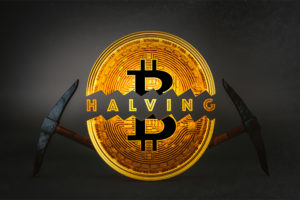Only 15% of cryptocurrency exchanges are fully regulated
Service Coinfirm analyzed several hundred cryptoclutte exchanges. Data from the report are very worrying. On the one hand kryptowaluty they have anonymity in their essence, but in the case of problems with the solvency of exchanges and possible hacking attacks on them, there is always a problem in targeting the perpetrators. What is more, the issues of regulation are not entirely clear, the rest will be seen in a moment, the vast majority of the market is practically completely not subject to them.
Be sure to read: 75% of cryptocurrency exchanges manipulate liquidity
216 of the leading exchanges was examined
According to Coinfirm, in a recently prepared report, 216 entities intermediating the exchange and trading of cryptocurrencies in the market were taken under the microscope. The selection was based on the transaction volume. The entire report can be viewed from two sides. One of them suggests that the lack of regulation should not be a greater obstacle to the functioning of stock exchanges, after all it is non-bank turnover, and on the other hand, the means available at crypto exchanges are significant. Therefore, the lack of specific rules and regulations regarding their operation creates unnecessary risks, related to even oversights. In combination with very high investment and operational risks, we have a very straightforward path to all types of fraud.
National license and client verification
One of the parameters of the evaluation of these entities was the possession of a national license (if it is required, in most countries, yes) and how and if the exchange user is verified at all. According to the report, government regulations have a very limited number of this type of institution. Even worse data flows from the second area under investigation. Namely, only a confirmed e-mail address is required to verify the customer. What is the conclusion from this? Stock exchanges with a poor authentication process are often chosen by customers whose capital for investments comes from illegal sources.
Other parameters taken into account are the possession of AML, i.e. procedures that are essentially intended to prevent money laundering. The regulations taken from banking institutions were also taken into account. This is about customer identification for a user who is a public official.
Disturbing conclusions
The results of the report are quite disturbing. As many as 85% of the surveyed exchanges do not have a license to operate from local regulators. Slightly better, but still worrying data concerns the issue of customer verification. 69% does not have basic regulations allowing to authenticate the account holder. The most optimistic data in the light of verification come from having AML procedures. More than half (around 58%) has introduced regulations regarding the prevention of money laundering.






















![Forex Club – Tax 9 – Settle tax on a foreign broker [Download the Application] Forex Club - Tax 9](https://forexclub.pl/wp-content/uploads/2024/02/Forex-Club-Podatek-9-184x120.jpg?v=1709046278)
![Trading View platform – solutions tailored to the needs of traders [Review] trading view review](https://forexclub.pl/wp-content/uploads/2024/03/trading-view-recenzja-184x120.jpg?v=1709558918)
![How to connect your FP Markets account to the Trading View platform [Guide] fp markets trading view](https://forexclub.pl/wp-content/uploads/2024/02/fp-markets-trading-view-184x120.jpg?v=1708677291)
![How to invest in ChatGPT and AI? Stocks and ETFs [Guide] how to invest in chatgpt and artificial intelligence](https://forexclub.pl/wp-content/uploads/2023/02/jak-inwestowac-w-chatgpt-i-sztuczna-inteligencje-184x120.jpg?v=1676364263)


![Izabela Górecka – “Success on the market depends not only on knowledge, but also on emotional stability” [Interview] Izabela Górecka - interview](https://forexclub.pl/wp-content/uploads/2024/04/Izabela-Gorecka-wywiad-184x120.jpg?v=1713870578)
![WeWork – the anatomy of the collapse of a company valued at $47 billion [WeWork, part II] wework bankruptcy story](https://forexclub.pl/wp-content/uploads/2024/04/wework-bankructwo-historia-184x120.jpg?v=1711729561)
![Adam Neumann – the man who screwed up Softbank [WeWork, part AND] adam neumann wework](https://forexclub.pl/wp-content/uploads/2024/04/adam-neumann-wework-184x120.jpg?v=1711728724)





![How to transfer shares to another brokerage office [Procedure description] how to transfer shares to another brokerage house](https://forexclub.pl/wp-content/uploads/2024/03/jak-przeniesc-akcje-do-innego-biura-maklerskiego-184x120.jpg?v=1709556924)
![The most common mistakes of a beginner trader - Mr Yogi [VIDEO] Scalping - The most common mistakes of a beginner trader - VIDEO](https://forexclub.pl/wp-content/uploads/2024/03/Scalping-Najczestsze-bledy-poczatkujacego-tradera-VIDEO-184x120.jpg?v=1711601376)
![Learning patience: No position is also a position - Mr Yogi [VIDEO] Scalping - Learning patience - No position is also a position - VIDEO](https://forexclub.pl/wp-content/uploads/2024/03/Scalping-Nauka-cierpliwosci-Brak-pozycji-to-tez-pozycja-VIDEO-184x120.jpg?v=1710999249)
![When to exit a position and how to minimize losses - Mr Yogi [VIDEO] Scalping - When to exit a position and how to minimize losses - VIDEO](https://forexclub.pl/wp-content/uploads/2024/03/Scalping-Kiedy-wyjsc-z-pozycji-i-jak-minimalizowac-straty-VIDEO-184x120.jpg?v=1710336731)
















